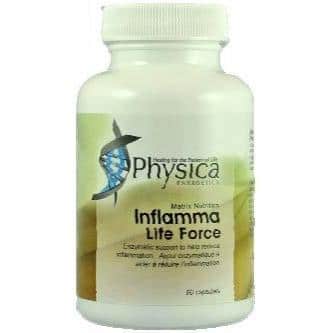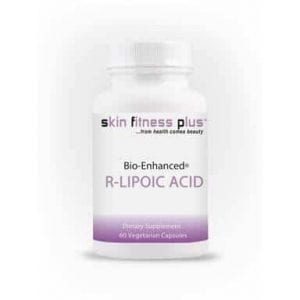Description
Botanical and nutritional support for local and systemic inflammatory conditions.
Inflammation is the body’s natural response to injury or infection. An inflammatory response can be triggered by physical trauma, chemical toxins, microbial infection, free radicals, etc.
Poor diet and faulty digestion is one of the main causes of inflammation.
An overburdened liver is unable to deal with the demands of detoxification, leaving the body exposed to assault by xenobiotics.
Key Ingredients:
- Boswellia (65% Boswellin – Frankincense) – The gum resin of this tree has anti-inflammatory and analgesic support properties. Devil’s Claw (Harpagophytum procumbens) – A traditional African and European remedy used to help inflammatory conditions.
- Pancreatin 8X – Pancreatin is a mixture of three pancreatic digestive enzymes: protease (breaks down protein) lipase (breaks down fat) and amylase (breaks down carbohydrates). When taken between meals they act as systemic enzymes providing anti-inflammatory support.
- Serrapeptase – A highly potent, proteolytic enzyme isolated from the organism Serratia (the silk worm).
- Turmeric (95% Tetrahydrocurcuminoids) – NOTE: this is a highly concentrated and expensive form of curcuma longa which is not to be confused with the typical turmeric you might find in cooking spices or many botanical formulations. Turmeric contains polyphenols that help lower the levels of messaging molecules that trigger inflammation. In Ayurvedic medicine, turmeric is believed to have numerous medicinal properties and many in India use it as an antiseptic for cuts and burns. As far as 4,000 years ago, records from Ayurvedic and Chinese medicine mention its oral use as remedy for many conditions. . A strong antioxidant, turmeric is rich with a substance believed to help
protect body cells from damage caused by oxidation. Oxygen free radicals may suppress immune function and cause tissue damage. In addition to their anticancer effects, antioxidants in turmeric protect the brain, kidneys, and liver from damage by alcohol, drugs, radiation, heavy
metals or chemical - Manganese – An important mineral used to help energy production, protein and fat metabolism, support healthy nerves, a healthy immune system, and the synthesis of L-dopamine. Manganese is required for bone growth, and the formation of cartilage and synovial fluid of the joints. Manganese is a component of manganese superoxide
dismutase (MnSOD), an antioxidant that helps protects the body from toxic substances. Manganese is essential in the formation of connective tissue. It helps give
strength and elasticity to muscles, tendons, ligaments and cartilage. Manganese is essential to the synthesis of muccopolysaccharides of the discs, tendons and ligaments.







Reviews
There are no reviews yet.